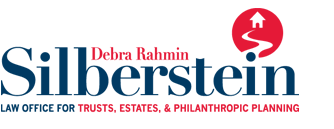Although you might think your estate plan is in order, have you thought about estate planning for digital assets? 
While the agent appointed under your power of attorney and the personal representative of your estate have wide-ranging powers to manage your tangible, real-world affairs, it remains unclear whether they have the authority to access and manage your online accounts in the case of your incapacity or death.
A Lack of Planning for Digital Assets Can Lead to Difficulties for Family Members
More and more people are going “paperless” with their banking and investment accounts, and rarely visit physical branches, preferring to conduct their transactions online on desktops, laptops, tablets, and other mobile devices. Likewise, our personal lives are increasingly lived online. Memories are stored in Facebook, Instagram, and Flickr accounts, and e-mail archives are taking the place of old shoe boxes filled with correspondence. As we embrace these new technologies, however, the trouble arises when our agents and representatives try to access our digital assets.
Bank of America, for example, has taken the position that a power of attorney does not grant the appointed person access to an incapacitated person’s online banking accounts. In order to protect the customer and mitigate risk, the Bank allows only account holders to access online accounts. Other institutions follow similar policies, leaving family members unable to manage the financial affairs of incapacitated loved ones.
Legal Uncertainty Remains Regarding Personal Representatives’ Authority to Take Control of Digital Assets
Further, a recent Massachusetts case has left open the question as to whether personal representatives should be able to access the decedent’s email accounts. The terms of service imposed by the major online email providers – including Yahoo! and Google – purport to limit access to the account-holder only. In Ajemian v. Yahoo!, Inc. the Massachusetts Appeals Court declined to answer the question of whether the emails contained in the decedent’s Yahoo! email account were property of the estate, remanding the issue to the trial court. The Court did find, however, that the personal representatives of Ajemian’s estate were not bound by the account terms of service, as Yahoo! failed to reasonably communicate the terms to the decedent.
Practical Steps to Save Future Difficulty
As we stay tuned for a decision from the trial court in the Ajemian case, there are practical questions to answer – what should you do to make sure your family members don’t have to worry about this?
The first step is to identify the assets you have – make a list of all accounts, including how they are held, along with usernames, passwords, and the answers to “secret” security questions. Traditional wills are unsuitable places for storing this kind of information, as they become a part of the public record during the estate administration process.
A more suitable option may be a separate document, either paper or electronic, which is kept in a safe place with your other estate planning documents. This should list all of the above information, and should be audited quarterly – adding any new accounts, removing any old one, and updating other changes accordingly. Providing this information directly to your agent or personal representative will ensure seamless administration of your digital assets, and save family members much frustration and heartache.
For questions about estate planning for digital assets, or any other estate planning matter, contact our Andover, Massachusetts Estate Planning Attorneys at the Law Office of Debra Rahmin Silberstein on (978) 474-4700.






